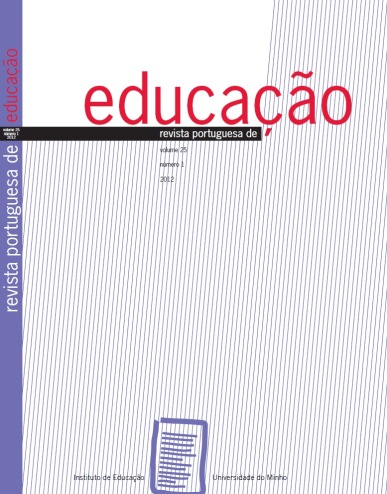CURRICULUM AND TEXTBOOKS IN A CONTEXT OF CURRICULAR FLEXIBILITY. ANALYSIS OF RECONTEXTUALIZING PROCESSES
DOI:
https://doi.org/10.21814/rpe.3016Abstract
This study analyses the message of two textbooks of the Natural Sciences curriculum for middle school, regarding specific pedagogic characteristics. It also analyses the recontextualizing processes that transform the science curriculum message in the textbook message. The study has epistemological, psychological and sociological theoretical bases. Bernstein’s theory of pedagogic discourse is the main theoretical framework. A mixed methodology is used with dialectical process between the theoretical and the empirical. The results revealed that, in both textbooks, the metascience is poorly valued, there is a weak conceptual relation between knowledges, the conceptual demand is very low and the text to be transmitted/acquired is implicit. The textbook mostly selected by teachers had the lowest results. The recontextualizing processes changed the message contained in the science curriculum. These results raise questions about the level of scientific learning in a context of curricular flexibility, where textbooks’ authors and teachers have greater control.
Keywords
Textbooks; Science education; Recontextualizing processes; Curricular flexibility
Downloads
Downloads
How to Cite
Issue
Section
License
1. The authors preserve their authorship and grant the Portuguese Journal of Education the right to the first publication. The work is licensed under Creative Commons Attribution License that allows sharing the work with the acknowledgment of initial authorship and publication in this Journal.
2. The authors have the right to take additional contracts separately, for non-exclusive distribution of the published version of their work (e.g. to deposit in an institutional repository or as a book chapter), acknowledging the initial authorship and publication in this Journal.
3. The authors have the permission and are stimulated to post their work online (e.g. in an institutional repository or on their personal website). They can do this at any phase of the editorial process, as it may generate productive changes, as well as increase impact and article citation (see The Open Citation Project).
The work is licensed under Attribution-ShareAlike 4.0 International (CC BY-SA 4.0)




















